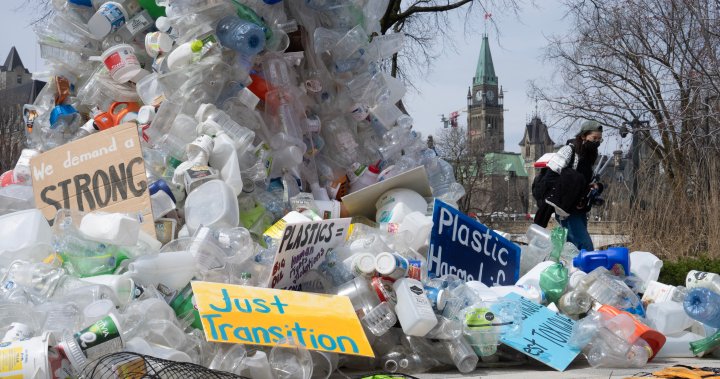Nearly 200 fossil fuel and chemical industry lobbyists are set to participate in United Nations negotiations on a global treaty to address plastic pollution, marking a 37% increase from the previous meeting in November. The talks, taking place in Ottawa, Canada, are approaching a crucial stage with just one round left to finalize a text that all countries can agree on by the end of the year. The goal of the treaty is to regulate the entire lifecycle of plastic, from production to disposal or reuse. However, some industry groups and countries reliant on fossil fuels are against strict regulations such as production caps or phase-outs, which could hinder progress.
Despite over 4,000 individuals registered to attend the negotiations, civil society groups have expressed concerns about the significant presence of industry representatives who could be affected by potential regulations. The presence of these actors in the negotiation process may create power imbalances that could impede progress, according to Rachel Radvany of the Center for International Environmental Law (CIEL). Similar complaints were made about the heavy representation of fossil fuel lobbyists at last year’s COP28 climate change talks, raising questions about the influence of industry stakeholders on international negotiations.
CIEL’s analysis, based on data provided by the U.N. Environment Programme, identified registered lobbyists from oil companies, chemical companies, their trade groups, as well as non-profits or think-tanks with ties to these industries. The International Council of Chemical Associations, representing members of the plastics, petrochemical, and chemical manufacturing industries, pushed back against the analysis, stating that NGOs would outnumber industry representatives at the negotiations. However, the analysis found that fossil fuel and chemical industry lobbyists outnumbered European Union delegations and representatives from Pacific Small Island Developing States, potentially skewing the discussion in favor of industry interests.
In addition to major industry players like ExxonMobil and Dow, lobbyists from countries including Malaysia, Thailand, and Iran are also participating in the negotiations, providing them with privileged access to closed-door sessions where sensitive discussions take place. Outside of the official negotiations, industry groups representing specialized parts of the plastics industry are actively promoting their interests through events and receptions. For example, the Vinyl Institute, which represents the PVC/vinyl industry, hosted a cocktail party during the November negotiations in Nairobi to attract key country delegations, including from the U.S. State Department, aiming to build relationships and influence decision-making.
The Vinyl Institute is again present at the Ottawa talks, emphasizing the importance of finding common ground among different stakeholders, including industry, governments, and civil society. As the negotiations progress, the Institute’s technical director, Dom Decaria, stated that the goal is to explore opportunities for collaboration and convergence of positions. Despite the significant presence of industry lobbyists at the talks, the ultimate aim is to reach a consensus on a legally binding treaty that effectively addresses plastic pollution and promotes sustainable solutions across the entire plastic lifecycle. The high stakes and complex dynamics of the negotiations highlight the need for transparency, accountability, and equitable representation to ensure meaningful progress towards combating plastic pollution on a global scale.


